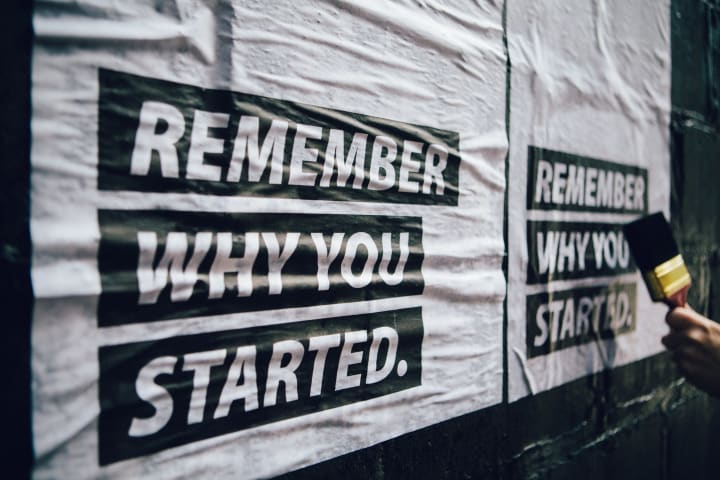7 More Free Online Courses to Learn About Social Activism (with Stats)
There’s more to social activism than the spread of messages across media.

I previously published a list of 8 online courses to help learn about social activism in relation to the mass media, which includes social media. If you’ve read the story, you might notice a weird stat about tweets 😕: every 60 seconds, 481 tweets are sent. Well, Twitter numbers are larger than that. At least 481,000 tweets are sent every internet minute, and many of these tweets have political hashtags in them.
The media is not the only sector that contributes to our societal development, but it is one with quite a number of studies online. To balance things out, I have decided to come up with a second list of yet another set of free online courses to learn about social activism. If you decide to take one or some of these course suggestions, whether with or without credit, you probably also want to learn about how to cite them on your resume.
People may still be unfamiliar with what a MOOC is. The Massive Open Online Course is an online learning platform targeting “unlimited participation” and open access through the web. Its most prominent characteristics are the option of free and open registration, publicly accessible curriculum, and the open-ended outcomes. Not all online courses are hosted on a MOOC platform.
1. ART of the MOOC Series: From Activism to Sound Experiments
I decided to place the entire series in the list because I find this ART of the MOOC installment to be a very well-managed set of courses: Activism and Social Movements (English/Spanish), Public Art and Pedagogy (English/Spanish), and Experiments with Sound (English). These are prepared by the Duke University and Creative Time, accessible from Coursera. Each of the course is available separately with certificates.
In Activism and Social Movements, the focus will be on the overlapping of socially engaged art and cultural practices of recent worldwide social movements. Public Art and Pedagogy is an attempt at public art interventions. Covered in the lectures are the major developments of topics such as “spatial politics, everyday social structures, and experimental education.”
The final installment, Experiments with Sound, focuses on sound interventions and musical compositions of the everyday life. Each course require different number of hours to complete, but none of them require prior certifications in the arts.
2. Advocating and Promoting for a Social Cause Through the Media
Activism and Citizen Journalism through Media is perfect for people who need to promote and advocate for a social cause. The free course is created by WitsX or the University of the Witwaterstrand, Johannesburg, offered through the EdX platform. In addition to learning about how to pitch a newsworthy story (for print media, radio, and social media), the course also covers the technical aspects, such as identifying newsworthy issues, defining the limits and possibilities of platforms and tools, applying ethical and safe practices in the media, as well as identifying the right strategy to reach a target audience.
3. How to Bring Positive Change
Make Change Happen is an 8-week course designed to understand the driving force behind positive social change—power dynamics, social systems, and the change mechanism. Although the syllabus states that it is aimed at activists and change agents with a professional interest in how to bring about change, this is also suitable for people interested in a career with a positive social impact. The course is presented by the Open University in collaboration with Oxfam, available through Future Learn. People in certain countries might be eligible for a free upgrade.
4. How People Use Public Spaces to Protest and Express Their Identity

Remember why you started poster. Photo by Jose Silva via Burst.
Identity, Conflict and Public Space explores how public spaces are used in ethnic and political conflicts around the world. Throughout the course, you’ll learn the key issues around the use of public spaces to express identity, the nature of social groups, and the importance of identity and public spaces. The final project is a digital artifact of a public space protest. The course is developed by Queen’s University Belfast and is currently archived at Future Learn.
5. 200 Years of Young American's Political Participation
Youth Political Participation is available through the MIT Open Courseware as it was taught in 2016. The weekly course is designed to investigate the trends in youth political activism within a span of 200 years, with a focus in identifying the differences in the youths’ media participation and technology use. If you decide to follow the suggested syllabus and learn the topics, be sure to consider visiting the MIT Museum.
6. The Values Expressed in People’s Choices of Food
Good Food: Ethics and Politics of Food explores the aesthetic, moral, cultural, religious, prudential, and political values observed in people’s food choices. From the individual decisions to how society manages the production and consumption of food, and how food choices could resolve conflicts. The course is available from the MIT Open Courseware as it was taught in 2017. Check out the syllabus for more information on what topics it covers and follow the diverse selection of reading materials. Some of the papers might require individual access to academic content libraries.
7. How globalization impacts different cultures
Topics in Culture and Globalization is another course that is available from the MIT Open Courseware. The course is particularly interested in how globalization impacts the everyday life in societies that are geographically far apart, and how it leads to a cosmopolitan culture that is common across the First and Third Worlds. You will also be learning about the movements that challenge globalization and the emergence of a global youth culture. There will be relevant films assigned for some sessions, some pop music materials, advertisement materials and political cartoons.
Some Stats on Online Learning

Only 10 percent of course takers complete their MOOCs. Photo by Sarah Pflug via Burst.
According to several reports on MOOCs:
- At least 23 million new learners signed up for their first MOOC in 2017. (Class Central, 2018)
- More than 500 MOOC based credentials are now available. (EdSurge, 2018)
- On average, 22% of our learners are fully participating. (Future Learn, 2018)
- Educators are active MOOC participants. These are students who self-identify as “being” or “having been” a teacher. (EdX, 2017)
- The vast majority of learners who complete open online courses are reporting career advancement (72%) or educational advancement (61%). (Coursera, 2015)
Although these courses are free and open, they are not necessarily easier than face-to-face courses. This is perhaps one of the biggest mishap people have about online courses. It is not an easy escape. In fact, without a strong motivation, there are more chances that you will miss a deadline on an online course than a face-to-face class, where attendance is mandatory and can contribute to a grade.
Some of the available online courses currently even facilitate credit transfers and online degrees. You don’t need to be tech savvy to take these courses, but it won’t hurt to learn some browsing techniques and internet safety tips.
About the Creator
Lovelli Fuad
A Riau-born full-stack freelancer. A storyteller, poet at heart, a short story writer in my own time. I'm published on Hubpages, Medium, and a Google local guide.
On a scale of $1 to $20, how attractive are you?






Comments
There are no comments for this story
Be the first to respond and start the conversation.